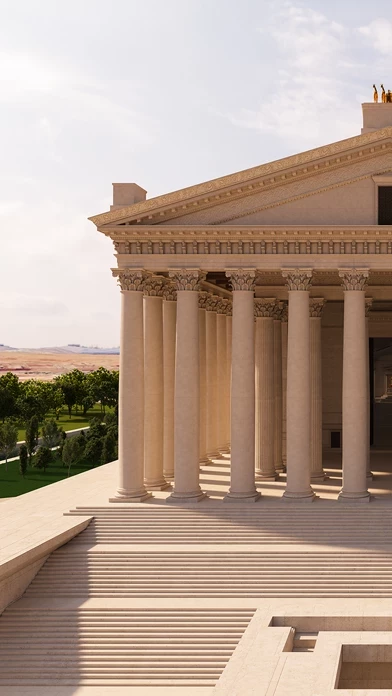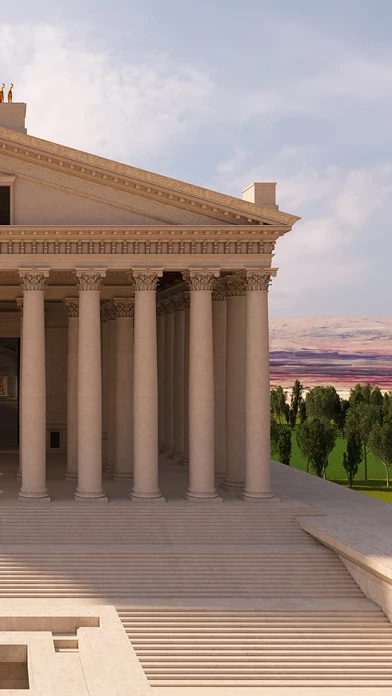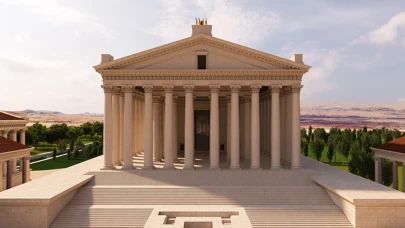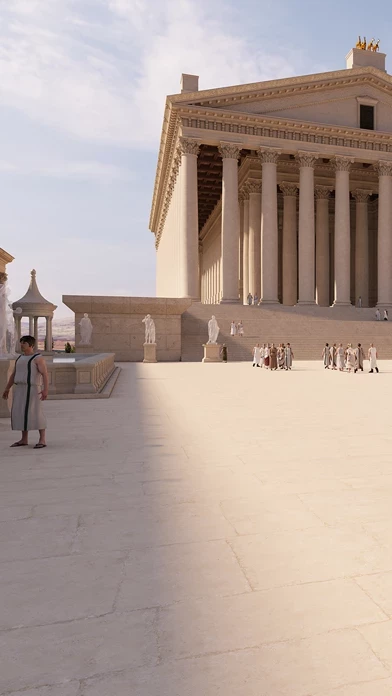The Ministry of Culture, General Directorate of Antiquities of Lebanon in partnership with the German Archaeological Institute and Flyover Zone presents this teletour taking you on a virtual tour of the Roman temples in Baalbek, Lebanon, one of UNESCO’s World Heritage Sites.
Learn how the granite used in the sanctuary was brought all the way from Egypt and how the Temple of Jupiter is in part built of the largest stones ever quarried in human history.
Go atop its roof (impossible to do when you actually visit the site today) to see a dramatic view of the sanctuary, modern town and the surrounding countryside.
See today’s ruins in the archaeological park and travel back in time to the third century of our era to enjoy its ancient splendor digitally restored.
Finally, visit the nearby complex with two temples whose modern names are Temple of the Muses and Temple of Venus.
Explore the plaza with its two large altars in front of the Temple of Jupiter rivaling in grandeur the imperial fora in Rome.
In short, virtual tourism and virtual time travel combine to make it easy for you to appreciate Baalbek’s unique gems of art and architecture.
Those whose circumstances do not permit them to travel to the site can use the teletour as an alternative to an actual visit.
Visit one of the best-preserved Roman temples—the so-called Temple of Bacchus.
Whether you are preparing to visit Lebanon or wish to deepen your understanding once you return home, this teletour helps you to get the most out of your visit.
At every one of the over 40 stops, you can hear explanations of what you are seeing offered by the German archaeologists who have been studying the site for over twenty years.
See a recreation of the Temple of Jupiter, one of the biggest shrines in the entire empire.
At most stops you can use our Time Warp feature to toggle between views of the ruins today and our reconstructions of how the same features appeared in antiquity.
Nothing remains of the statue itself, but, thanks to the generosity of the Louvre, we are able to show you two well-preserved statuettes that reproduce it on a reduced scale.
















